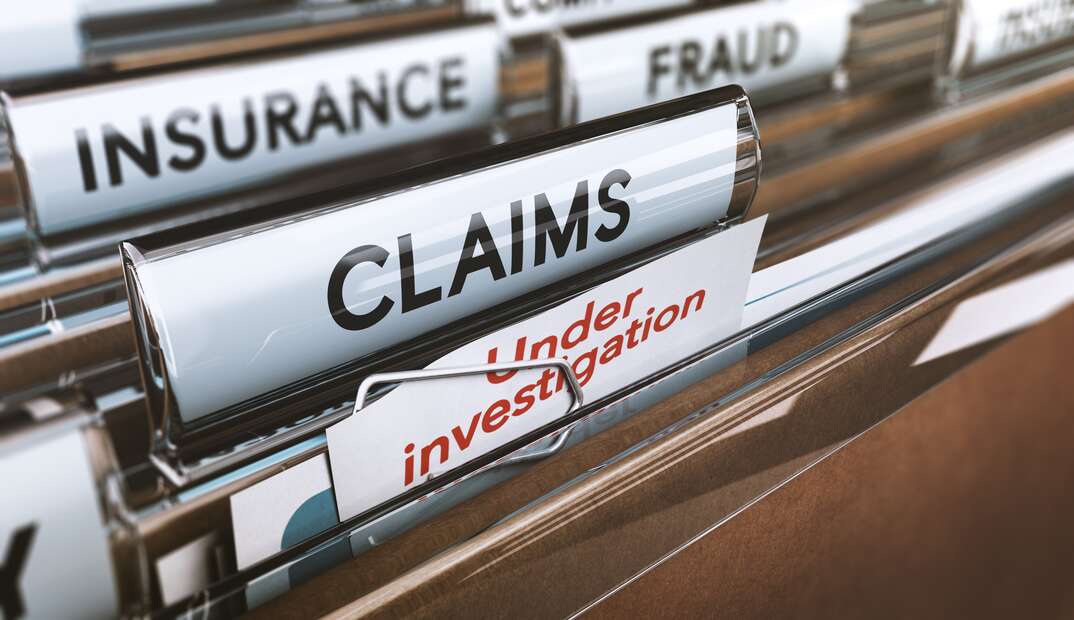- AppliancesElectriciansHVACLandscapingLocksmithPest ControlPlumbingRenovationRoofingT V RepairAll Home Improvement
- Car AccidentClass ActionCorporate LawCriminal DefenseDivorce LawEmployment LawFamily LawFinancial LawLegal AidMedical Injury LawyersMedical MalpracticeReal Estate LawWater Fire RestorationAll Legal
- InvestmentRetirementAll Finance
- Animal InsuranceAutoGeneral InsuranceHealth PolicyHome RentersAll Insurance
- DentalHealth SpecialistsAll Medical
- Animal CareVeterinaryAll Pets
- Auto GlassTowingAll Automotive
3 Insurance Fraud Offenses You Might Think Are No Big Deal

No one likes to pay insurance premiums, but a good insurance policy protects you against significant losses. For example, health insurance prevents you from having to pay thousands of dollars out of your own pocket for surgery or emergency medical care.
Although insurance is helpful, it also comes with a lot of rules and restrictions. Before you file a claim, learn more about some of the actions that constitute insurance fraud.
Insurance fraud is when you lie to an insurance company to obtain some type of advantage. For example, if you submit a false claim to your health insurance company, you're trying to get reimbursed for expenses you never incurred. This gives you a financial advantage that you're not entitled to receive under the terms of your policy.
What Are Some ‘Minor’ Insurance Fraud Offenses?
Insurance fraud is a broad term that applies to many situations. Although widespread fraud schemes get the most attention, it's possible to commit insurance fraud without even realizing it, especially if you take advice from someone with no experience in the insurance industry. These actions seem minor, but they can actually land you in hot water with the authorities.
1. Filing Multiple Claims for One Incident
If you have a covered loss, you need to file a claim with your insurance company. Once the claim is approved, you'll receive the funds you need to repair or replace your damaged property. For example, if your home is damaged in a natural disaster, your insurance company may give you funds for a new roof and new siding.
Some people file multiple claims in an attempt to maximize the amount of money they receive. This seems harmless, but it's an example of insurance fraud. If you experience a covered loss, make sure you don't file multiple claims.
2. Making False Reports Related to Stolen Property
Another example of insurance fraud is filing false claims related to stolen property. For example, if you report a valuable necklace as stolen when it's sitting in your jewelry box, you may be able to convince your insurance company to reimburse you for it. Another example of this type of fraud involves abandoning an automobile and reporting it as stolen. In both cases, you're misrepresenting the truth to your insurance company.
3. Providing False Information to Your Insurer
When you sign up for coverage, your insurance company asks for your physical address, telephone number and other personal information. It may seem like no big deal to put down someone else's address, but doing so is a type of insurance fraud.
For example, if you provide your sibling's address instead of your own, your insurance company won't be able to make an accurate assessment of your risk profile. Insurers base their premiums on where you live, so giving a false address also prevents your insurance company from charging you the correct price.
More Related Articles:
- 7 Clauses to Look Out For in Your Homeowners Insurance Policy
- What’s a Deductible?
- Insurance Terms, What Is an Act of God?
- What Is an Insurance Premium?
- What’s the Difference Between Homeowners and Renters Insurance?
Although these actions seem harmless, insurance fraud is a crime. It doesn't matter if the fraud results in a gain of $5 or $5,000. If you're convicted of insurance fraud, you may be sentenced to fines, restitution, jail time, probation or other penalties. A criminal conviction can also damage your reputation and make it difficult to find employment.
How to Avoid Fraud When Filing an Insurance Claim
There's nothing wrong with filing an insurance claim when you experience a legitimate loss. The key is to be honest and follow your insurance company's rules. Here are a few tips that can help you avoid committing insurance fraud by mistake:
- File just one claim for each incident. If you forget to include something, contact your insurance agent. You may be able to amend your original claim rather than submitting a new claim.
- Keep good records. When you file a claim, your insurance company may ask you to provide the value of each damaged or stolen item. You can't just make up prices and hope your insurer will agree. Instead, you need to provide documentation. If you keep receipts, sales contracts and other records, you'll find it easy to provide the requested information.
- Contact your insurance agent if you're not sure about something. Asking for advice before you submit a claim can help you avoid unintentional errors.
Elocal Editorial Content is for educational and entertainment purposes only. Editorial Content should not be used as a substitute for advice from a licensed professional in your state reviewing your issue. The opinions, beliefs and viewpoints expressed by the eLocal Editorial Team and other third-party content providers do not necessarily reflect the opinions, beliefs and viewpoints of eLocal or its affiliate companies. Use of eLocal Editorial Content is subject to the
Website Terms and Conditions.The eLocal Editorial Team operates independently of eLocal USA's marketing and sales decisions.



